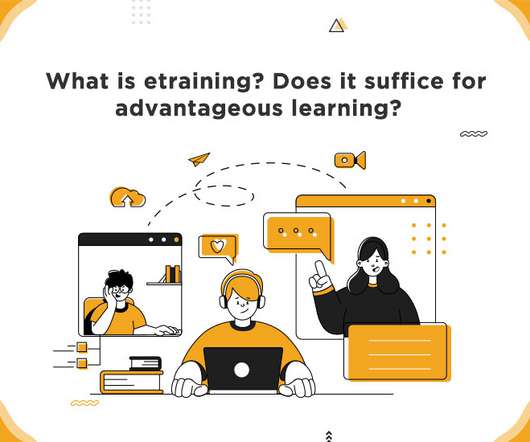What is social learning (and how to adopt it)
Docebo
JULY 8, 2021
Course completion increased to 85% on HBX, a Harvard Business School online education initiative when it introduced social learning. Semiconductor manufacturer, AMD, says their shift to social learning saves more than US$250,000 per year in web-based training production costs. What is social learning?























Let's personalize your content